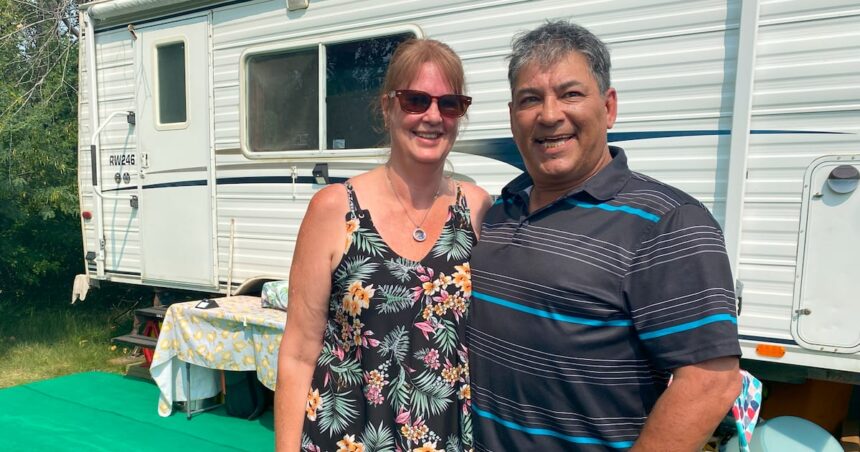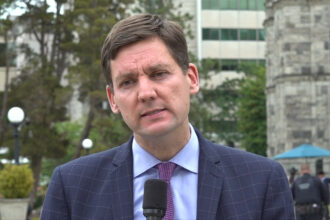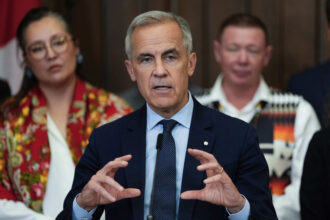The charred remains of what was once the Peters family home stand as a stark reminder of how quickly life can change—and the devastating consequences of difficult financial decisions. Last Tuesday, a devastating electrical fire tore through the two-story house in Belleville, Ontario, reducing three decades of memories to ashes in a matter of hours. For the Peters, the tragedy carries an additional burden: just four months earlier, they had cancelled their home insurance policy to manage rising household costs.
“We’re going to have to rebuild our life from nothing,” says Michael Peters, 52, fighting back tears as he surveys the damage. “When we made the decision to cut the insurance, we thought we were just being practical. The premiums had doubled in two years. It was either that or not making the mortgage.”
According to data from the Insurance Bureau of Canada, home insurance premiums across Ontario have increased by an average of 32% since 2023, with some homeowners reporting increases of up to 70%. This surge is attributed to a combination of factors including climate change-related extreme weather events, inflation in construction costs, and supply chain disruptions still lingering from the post-pandemic economy.
“We’re seeing an alarming trend of homeowners, particularly seniors and those on fixed incomes, dropping their coverage entirely,” explains Samantha Whitfield, an insurance analyst with the Consumer Protection Association of Ontario. “What happened to the Peters family isn’t an isolated incident. Our research suggests approximately 8% of Ontario homeowners are currently uninsured, up from just 3% in 2022.”
The fire, which investigators determined started from an electrical fault in the home’s aging wiring system, spread rapidly through the main floor while the family was having dinner. Michael, his wife Eleanor, and their teenage son escaped unharmed, but the family dog, Max, perished in the blaze.
“The firefighters told us if it had happened at night while we were sleeping, it could have been much worse,” Eleanor Peters told CO24 News. “We’re grateful to be alive, but everything we owned is gone. Our photos, family heirlooms, everything.”
Community response has been swift. Neighbors have organized a GoFundMe campaign that has raised nearly $12,000 so far. Local businesses have donated clothing, food, and temporary accommodations at a nearby hotel. But the long-term outlook remains challenging for the family.
Provincial data shows the Peters family is part of a troubling pattern across Canada. A recent study from the National Housing Research Council found that approximately 195,000 Canadian households have cancelled property insurance policies since 2023, citing affordability concerns. The same study noted that uninsured households face an average recovery cost of $287,000 following a major house fire.
“It’s a terrible situation that’s becoming more common,” says Daniel Morris, Belleville’s fire chief. “We’re responding to more fires in uninsured homes than ever before. People are making these impossible choices between basic necessities and protection against catastrophe.”
The provincial government has acknowledged the insurance affordability crisis but has yet to implement regulatory solutions. Housing Minister Carolyn Singh indicated last month that stakeholder consultations are ongoing, with potential measures including premium caps and subsidies for low-income homeowners expected to be announced before year-end.
For the Peters family, such measures would come too late. They’re currently staying with relatives while trying to determine their next steps. Michael, who works as a delivery driver, says the family had approximately $8,000 in savings—nowhere near enough to rebuild.
“We knew dropping the insurance was risky,” Eleanor admits, “but when you’re choosing between feeding your family today and protecting against something that might never happen… it didn’t seem like a choice at all.”
As Canadians face increasingly difficult financial decisions in today’s economy, the Peters family’s experience raises a troubling question: How many more families are one disaster away from complete financial ruin because our system has made basic protections unaffordable?






















